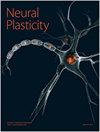利用图卷积神经网络识别与多动症相关的异常功能连接性
IF 3.7
4区 医学
Q2 Medicine
引用次数: 0
摘要
注意缺陷多动障碍(ADHD)是一种常见的神经发育障碍,以注意力不集中、多动和冲动为特征。人们对注意力缺陷多动障碍(ADHD)的神经机制仍然认识不足,目前的研究方法也不能很好地将大脑网络中的神经网络和注意力网络联系起来。我们的目标是研究与注意力相关的神经机制,并探索可在注意力网络中推广的神经影像生物学标记。在本文中,我们利用静息态功能性磁共振成像数据,研究了多动症患者和典型发育患者之间不同的功能连接网络。我们采用图卷积神经网络模型来识别多动症患者。分类后,我们将对分类结果有显著贡献的脑区可视化。我们的结果表明,额叶、颞叶、顶叶和小脑区域可能是多动症患者功能障碍的主要区域。我们还探讨了感兴趣区与注意力网络之间的关系,以及关键节点之间的联系和正负相关联系的分布。通过分析,我们确定了最具辨别力的脑区,包括右侧眶额回、左侧直肌回和双侧岛叶、颞区的右侧颞下回和双侧颞横回、枕叶的舌回、基底神经节的多个区域以及小脑上部。这些区域主要参与注意执行控制网络和注意定向网络。这些区域的功能连接功能失调可能是导致多动症的根本原因。本文章由计算机程序翻译,如有差异,请以英文原文为准。
Identifying ADHD-Related Abnormal Functional Connectivity with a Graph Convolutional Neural Network
Attention deficit hyperactivity disorder (ADHD) is a common neurodevelopmental disorder that is characterized by inattention, hyperactivity, and impulsivity. The neural mechanisms underlying ADHD remain inadequately understood, and current approaches do not well link neural networks and attention networks within brain networks. Our objective is to investigate the neural mechanisms related to attention and explore neuroimaging biological tags that can be generalized within the attention networks. In this paper, we utilized resting-state functional magnetic resonance imaging data to examine the differential functional connectivity network between ADHD and typically developing individuals. We employed a graph convolutional neural network model to identify individuals with ADHD. After classification, we visualized brain regions with significant contributions to the classification results. Our results suggest that the frontal, temporal, parietal, and cerebellar regions are likely the primary areas of dysfunction in individuals with ADHD. We also explored the relationship between regions of interest and attention networks, as well as the connection between crucial nodes and the distribution of positively and negatively correlated connections. This analysis allowed us to pinpoint the most discriminative brain regions, including the right orbitofrontal gyrus, the left rectus gyrus and bilateral insula, the right inferior temporal gyrus and bilateral transverse temporal gyrus in the temporal region, and the lingual gyrus of the occipital lobe, multiple regions of the basal ganglia and the upper cerebellum. These regions are primarily involved in the attention executive control network and the attention orientation network. Dysfunction in the functional connectivity of these regions may contribute to the underlying causes of ADHD.
求助全文
通过发布文献求助,成功后即可免费获取论文全文。
去求助
来源期刊

Neural Plasticity
Neuroscience-Neurology
CiteScore
5.70
自引率
0.00%
发文量
0
审稿时长
1 months
期刊介绍:
Neural Plasticity is an international, interdisciplinary journal dedicated to the publication of articles related to all aspects of neural plasticity, with special emphasis on its functional significance as reflected in behavior and in psychopathology. Neural Plasticity publishes research and review articles from the entire range of relevant disciplines, including basic neuroscience, behavioral neuroscience, cognitive neuroscience, biological psychology, and biological psychiatry.
 求助内容:
求助内容: 应助结果提醒方式:
应助结果提醒方式:


